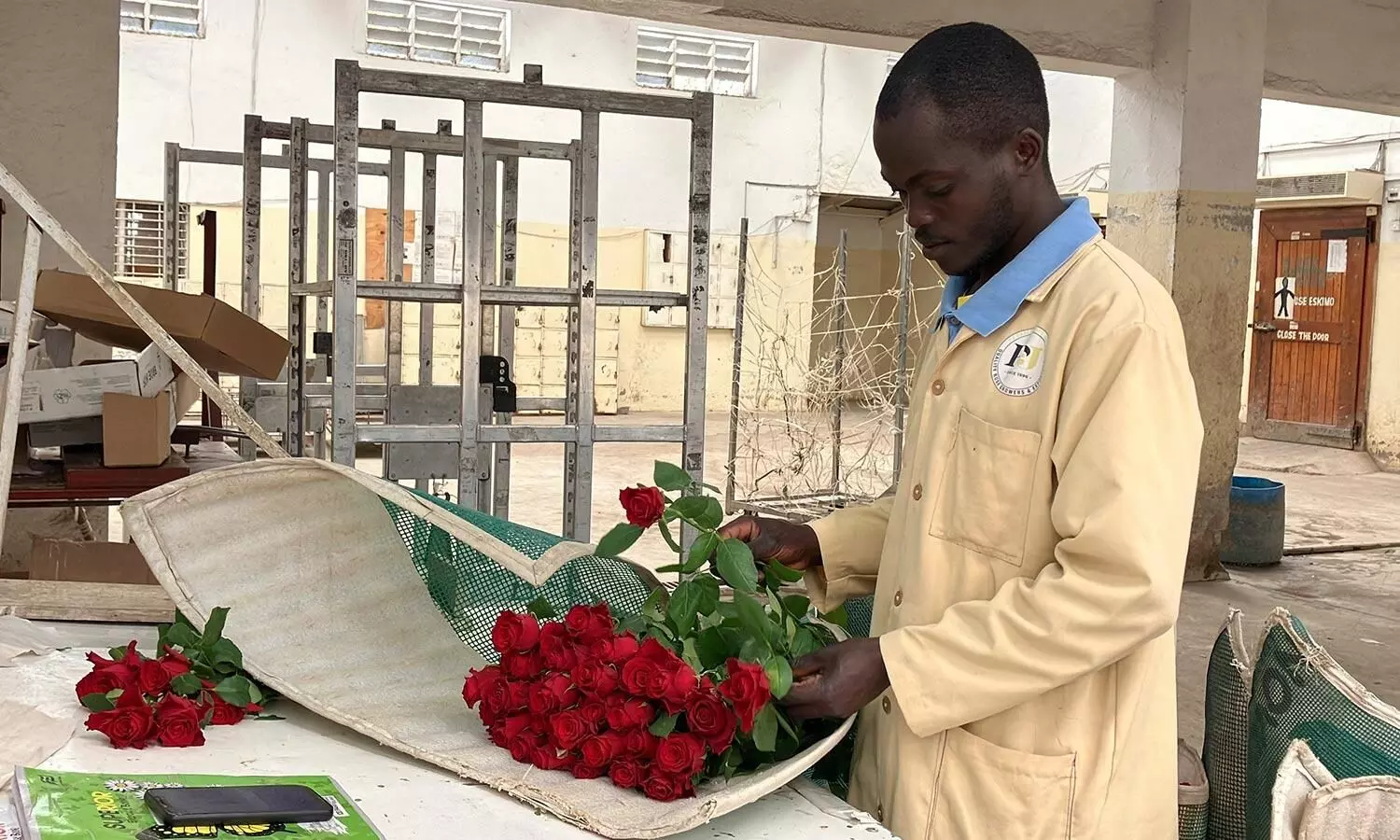
How air cargo is boosting global flower trade
In 2024, air-transported global flower exports reached $3.7 billion—a whooping fourfold increase from $852 million in 2003, according to IATA.

Kenyan roses are being packed at PJ Dave Flower Group's farm near Nairobi for export to Europe
A recent IATA report found that the global flower trade has flourished over the past two decades, driven by the efficiency and reliability of air cargo. The value of air-transported flowers surged from USD 852 million in 2003 to USD 3.7 billion in 2024, a four-fold increase. This rapid expansion has reshaped the market, with Kenya and Ethiopia emerging as major players, challenging traditional exporters like Colombia and Ecuador.
Market trends and growth
In 2003, Colombia dominated the global flower export market with a 50.2% share, followed by Ecuador (16.2%) and the Netherlands (8.9%). By 2024, Colombia’s share had declined to 42.3%, while Kenya expanded to 16.1% and Ethiopia entered the market with 5.5%. The Netherlands, once a key player, has been replaced by these rising African exporters, largely due to advancements in air freight logistics.
On the import side, the US remains the top importer, though its share has dropped from 66.3% in 2003 to 53.6% in 2024. The Netherlands now holds 31.2% of imports, strengthening its role as a re-export hub, while the UK accounts for 5.5%.
The role of air cargo in flower exports
The perishability of flowers makes air freight indispensable in global trade. In fact, air cargo ensures that freshly harvested blooms reach consumers across continents within hours. Advancements in temperature-controlled transport, specialised cargo aircraft, and expanded flight routes have significantly boosted the efficiency of flower exports.
Fresh flowers are being carefully picked at PJ Dave Flower Group's farm, ready to be transported to Europe via air freight, supported by a seamless cold-chain network of trucks and warehouses.
Stanislas Brun, Vice President Cargo at Etihad Cargo, describes Kenya as "one of the most dynamic air cargo markets in Africa, offering strong export potential across multiple sectors." He emphasises Etihad Cargo’s role in supporting Kenya’s floriculture industry, transporting 95 tonnes of flowers from Nairobi each week and connecting exporters to Europe, the UAE, and other key markets.
Similarly, Zlatko Zlatic, Head of Cargo Sales and Handling - Eastern Africa at Lufthansa Cargo, highlights Kenya’s growing trade and logistics sector, saying: "Trade in Kenya is closely dependent on the agricultural and economic development of the country. As we are currently seeing a lot of infrastructural development, we estimate significant potential in logistics as well." Lufthansa Cargo operates ten flights per week transporting flowers, fresh produce, and seafood, adding seven additional 777F flights in peak periods like Valentine’s Day to meet demand.
Infrastructure and future outlook
Kenya’s Jomo Kenyatta International Airport (JKIA) handles approximately 400,000 tonnes of air cargo annually, with flowers, fresh produce, and meat making up a significant portion of outbound freight. Investments in cold storage facilities, expanded cargo terminals, and digital logistics platforms ensure efficient handling and distribution.
According to an IATA report using Global Trade Tracker data, two key factors have driven the shift in the global flower trade:
Trade agreements have reduced tariffs and market barriers, opening doors for emerging exporters.
Air cargo advancements, including improved refrigeration, specialised handling, and efficient routing, have enabled large-scale global distribution while preserving flower freshness.
As demand for fresh flowers continues to rise, air cargo remains the backbone of this thriving industry. With Kenya and Ethiopia reshaping global market dynamics, the future of flower exports looks promising, sustained by efficient air freight networks and continuous investment in logistics infrastructure.

